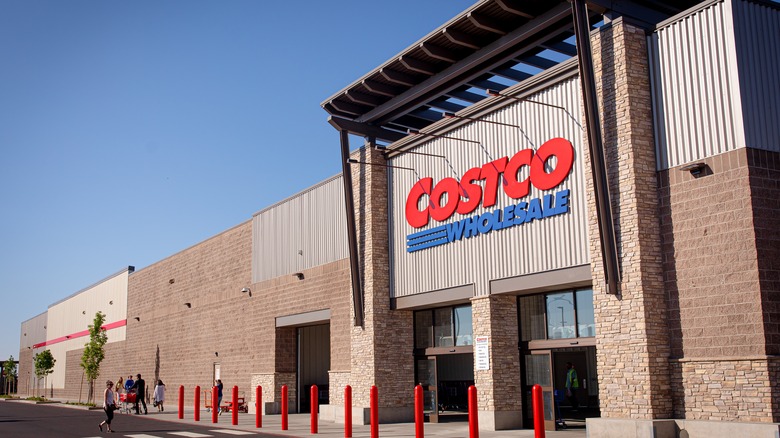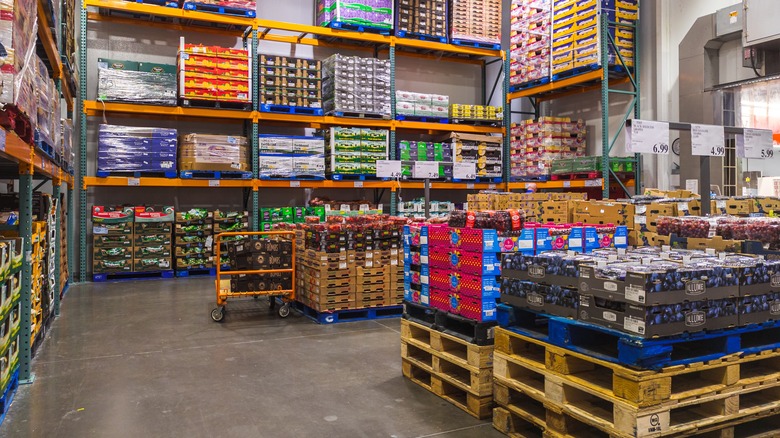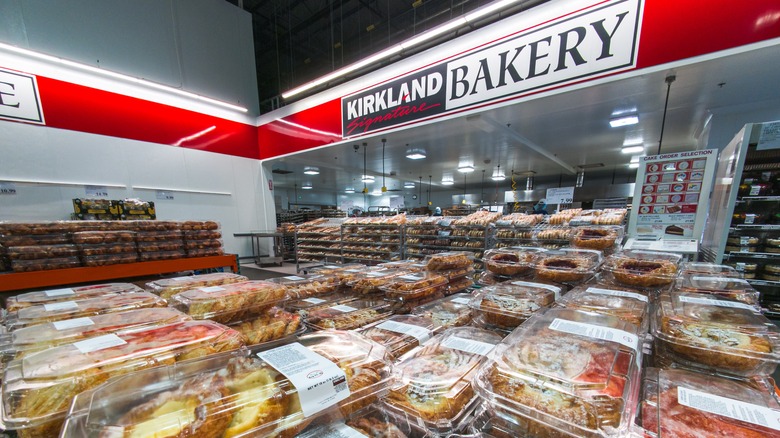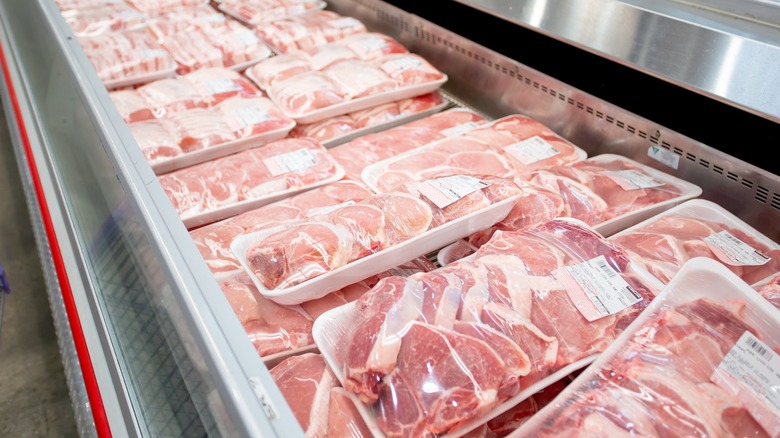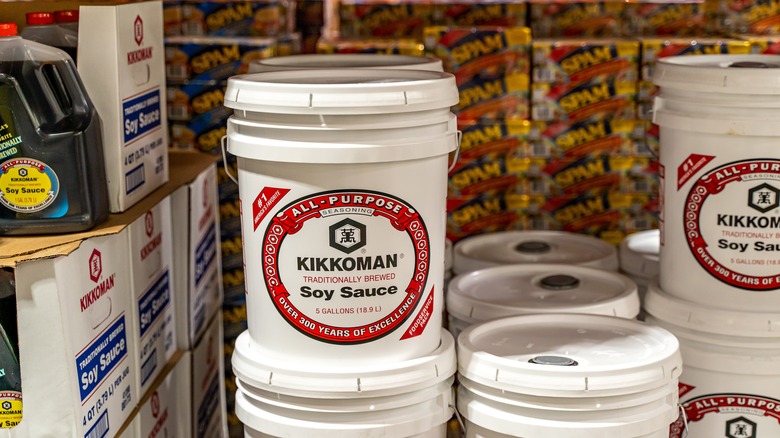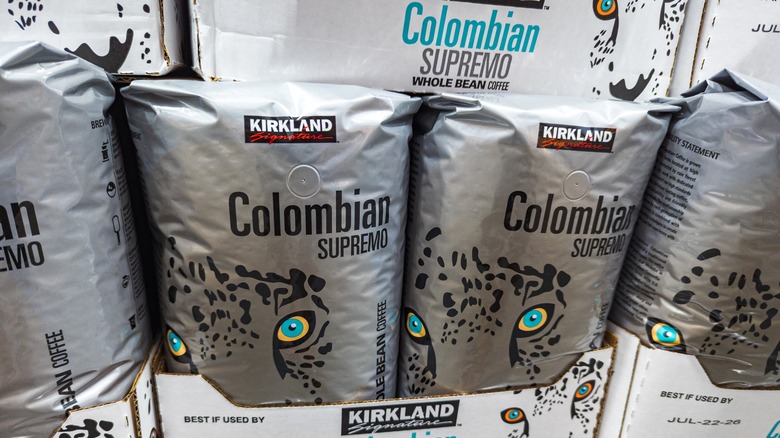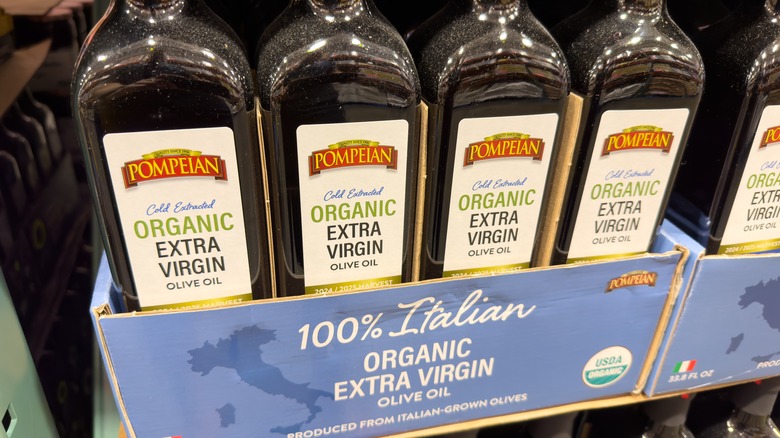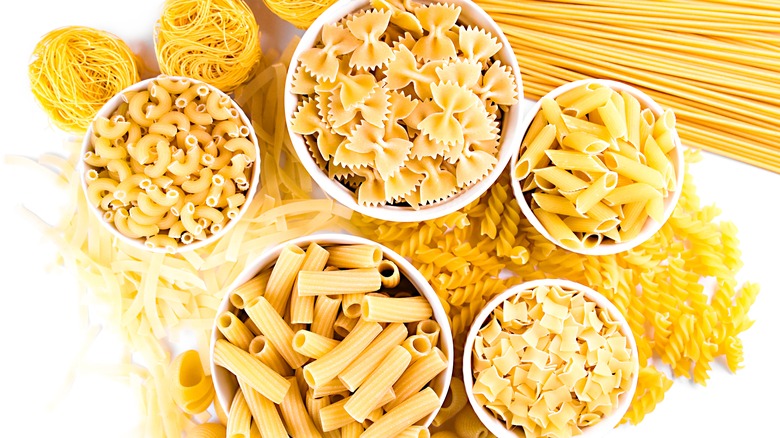Costco Items Smart Shoppers Should Stock Up On
Costco has always been a smart place to save—especially when you buy in bulk. The company's Kirkland Signature brand offers high-quality products at prices lower than many name brands. But in 2025, shopping smart isn't just about saving money—it's about staying ahead of rising costs.
The U.S. government has announced new tariffs (extra taxes on imported goods) on over 90 countries, ranging from 10% to as high as 145%. Tariffs could make everyday items more expensive. While many of these tariffs are already in place, others are set to take effect soon. That means prices on staples like coffee, olive oil, rice, and seafood could rise quickly. Most of these items are sourced from countries such as Mexico, Canada, and China, making them especially vulnerable to trade-related price hikes.
If trade talks don't work out, the U.S. could add additional tariffs ranging from 5% to as high as 40% these items. For the things we eat and use every day, even small price increases can add up significantly. Here are Costco items that are most likely to get more expensive soon, and why it's smart to buy them now. Some can be stored for months, while others can be frozen for extended periods. Either way, stocking up now can help you save money both now and in the future.
Mexican avocados, fresh produce, and alcohol
Mexico is the leading supplier of agricultural imports, including fruits, vegetables, plants, and other products to the United States, according to the USDA. In 2023 alone, Mexico accounted for 63% of all U.S. vegetable imports and 47% of fruit and nut imports, making it an important source of everyday staples. On August 1, 2025, the U.S. paused a 30% tariff on products from Mexico for 90 days following a temporary agreement between the two countries. But the pause isn't permanent. If talks between the U.S. and Mexico don't go well, or if Mexico fails to meet certain goals, the tariff could be implemented quickly and without much notice. If it does, prices on everyday items from Mexico could go up quickly.
Take avocados, for example—they're one of the most popular fruits in the U.S., used in everything from sandwiches and salads to guacamole. Americans consume more than 8 pounds of avocados per person each year, the USDA points out, and nearly 90%, worth $2.7 billion, are sourced from Mexico. Costco also carries well-known Mexican imports like Corona and Modelo beers, and Kirkland's tequila is made at the Santa Lucia distillery in Tesistán, Jalisco. Other top Mexican imports include fresh tomatoes, raspberries, bell peppers, and strawberries, all made possible by Mexico's year-round growing season and close proximity to U.S. markets. Even a slight price increase on these everyday items could ripple through grocery bills nationwide.
Costco sells avocados and fruits from Mexico, such as pineapples, strawberries, and blueberries in bulk at reasonable prices. You can keep them fresh longer by storing them in the fridge. You can also mash them and freeze them for later use, which helps reduce waste and saves money. If you eat these often, or your favorite alcoholic beverage is from Mexico, it's a good idea to buy extra now. Costco's large packs make it easy to stock up and save.
Canadian baked goods, canola oil, maple syrup, and chocolate
Canada plays a major role in supplying everyday staples to the U.S., including over $5 billion in baked goods like muffins, croissants, and cookies. Add another $4.6 billion in canola oil and $1 billion in chocolate, and the impact becomes clear. Costco's Kirkland Signature Organic Maple Syrup is produced in Quebec, which supplies more than 72% of the world's maple syrup. Their Kirkland Signature Canola Oil also relies on Canadian-grown canola, as Canada remains the world's top exporter.
Since the U.S. imports a substantial quantity of these products, upcoming tariffs on Canadian goods could significantly impact the U.S. market for baked goods and chocolate, likely leading to higher prices and potential supply chain disruptions. On September 1, 2025, the Canadian government officially lifted its 25% retaliatory tariffs on over $20 billion in U.S. imports, reversing measures that had been in place since March. For now, consumer foods such as baked goods, chocolate, wine, and packaged foods are no longer subject to Canadian retaliation, which helps stabilize prices. But the risk of new or reinstated tariffs remains high, especially if trade talks falter or the U.S. escalates enforcement.
If that happens, prices on canola oil, maple syrup, chocolate, and baked goods could rise quickly. These are items many households use weekly, sometimes daily, so even small increases can add up fast. Costco's bulk packs of muffins and croissants freeze well for months. Their chocolate boxes, maple syrup, and canola oil also offer excellent value, especially for holidays and gifting. And with Mexico and Canada among the largest chocolate exporters to the U.S., stocking up now means locking in today's prices before the next round of tariffs potentially takes effect.
Canadian salmon and pork
According to the USDA, nearly two-thirds of the agricultural goods the U.S. imports from Canada, approximately 63.8%, are comprised of meat and other animal products, grains, animal feed, and oilseeds. Among the most significant are $1.2 billion in salmon, over $1.7 billion in pork, and an additional $560 million in live pigs. On average, Americans consume over 51 pounds of pork per person each year, making it the third most popular meat after beef and chicken. Salmon also ranks among the top seafood choices in the United States.
These are everyday proteins that many American families rely on. Like Canadian baked goods, maple syrup, and chocolate, these items recently saw their tariffs lifted, but the risk of reinstated tariffs remains high if trade negotiations falter. If new tariffs take effect, prices on pork and salmon could climb quickly.
Costco offers excellent value on these staples, with fresh and frozen salmon fillets and bulk pork packs often priced lower than traditional grocery stores. Both freeze well, making them ideal for long-term storage. For households that regularly cook with salmon or pork, stocking up now is a smart move. Buying ahead means locking in today's prices and ensuring your freezer stays full of healthy, versatile options, while sidestepping potential price hikes down the line.
Chinese sauces and condiments
Almost half of all of Costco's products come from Mexico, Canada, and China, according to Reuters. The U.S. buys a lot of sauces, condiments, and pasta from China. In 2024, the U.S. imported nearly $2.4 billion in sauces and seasonings. The top countries were Italy ($684 million), Canada ($534 million), Mexico ($481 million), and China ($156 million). The most popular sauces and condiments from China include oyster sauce, soy sauce, chili oil, garlic sauces, and sweet and sour sauces. In addition to adding to any meal, these sauces are also used in Asian cuisine, snack products, and frozen meal kits.
Tariffs regarding China have become complicated. The United States imposed a 30% tariff on goods from China in May, which was later reduced to help calm the trade dispute between the two countries. At one point, the rate hit a peak of 145% during a sharp escalation in trade tensions. The current tariff rate of 30% will remain in place until November 10, following President Trump's order granting a 90-day extension. President Trump said the tariffs could increase again if the U.S. and China don't reach a new agreement. However, he also stated that it wouldn't be as high as the 145% rate from April.
Sauces and condiments are pantry staples, things we use often and that last a long time. Costco offers large bottles and multi-packs that are ideal for stocking up. Most sauces can stay fresh for a year or more if stored properly. These items are easy to store and don't take up much space. If tariffs go into effect, you'll be glad you stocked up early.
Coffee
Brazil is the world's leading coffee exporter, producing approximately one-third of the world's coffee. The United States is the world's second-largest coffee importer, with 35% of its unroasted coffee coming from Brazil, according to the USDA. Two-thirds of U.S. adults drink approximately three cups of coffee per day on average, amounting to over 164 billion six-ounce cups of coffee annually, per data from the National Coffee Association.
On August 6th, a 50% enhanced tariff took effect on Brazilian goods. However, on September 5, President Trump signed an executive order revising U.S. tariff regulations to align with ongoing trade talks. One key provision for the coffee industry is the designation of certain imports, like coffee, tea, and cacao, as "unavailable natural resources." This classification opens the door for these items to be potentially exempt from future retaliatory tariffs, though that exemption is not guaranteed.
While the tariff debate is ongoing, coffee drinkers may want to stock up on coffee produced in other countries. Currently, tariffs for Colombia, another major coffee exporter, are set at 10%. Earlier in 2025, the U.S. threatened Colombia with tariffs of 25–50% in response to deportation disputes, but these were subsequently suspended following diplomatic talks. Costco sells large bags of coffee beans and ground coffee at great prices. There are several varieties of Kirkland coffee made in Colombia, Brazil, Ethiopia, and other countries. Look for "Product of Colombia" or "Product of Brazil" on the back or bottom of the package. Whole beans can stay fresh for up to a year, and ground coffee lasts about six months. You can also freeze coffee to keep it fresh even longer.
Italian and Spanish olive oil
The United States imports over $3.22 billion in pure olive oil, with Spain contributing $1.17 billion and Italy more than $1 billion, according to the Observatory for Economic Complexity. Olive oil is a staple in American kitchens, used for cooking, baking, and dressings, and its supply chain is under pressure. Current tariffs on European Union (EU) products stand at 15%, but they could rise to 20% or higher. Meanwhile, severe droughts across Europe have slashed olive harvests by up to 50%, setting the stage for potential price spikes.
Costco's Kirkland Signature olive oil is available in several varieties, each renowned for its quality and value. The Organic Extra Virgin Olive Oil is sourced from Italy, while other options, such as the Spanish and Greek Extra Virgin Olive Oils, clearly label their origin. These large-format bottles are shelf-stable and can last up to two years when stored in a cool, dark place.
For households that rely on olive oil regularly, this is a smart item to buy in bulk. It's easy to store, versatile, and increasingly vulnerable to rising costs. With tariffs poised to increase and European supply shrinking, stocking up now means securing today's prices—and ensuring your pantry stays ready for months of cooking ahead.
Pasta
The U.S. consumes approximately 5.95 billion pounds of pasta per year. This is equivalent to nearly 20 pounds of pasta per person annually, making it the sixth most-consumed food per capita in the country. The U.S. imports $1.62 billion in pasta every year, primarily from Italy, which according to the Observatory for Economic Complexity accounts for $663 million, South Korea at $271 million, and China, which imports approximately $103 million worth of pasta each year. The United States is the top destination for Chinese pasta exports.
The tariffs for importing pasta vary by country and are subject to change based on ongoing trade negotiations. Pasta from Italy and other European Union nations faces a 15% tariff, with proposals under review to raise that rate to 20–25% due to ongoing disputes over digital taxes and trade imbalances. South Korea is subject to a 15% negotiated rate on select food categories. China tariffs remain unpredictable, and beyond the 90-day extension, tariffs could increase again if the U.S. and China fail to reach a new agreement.
These tariffs, combined with global supply chain pressures and climate-related disruptions, such as droughts in southern Europe, could drive pasta prices higher in the coming months. Italy, the world's top pasta exporter, has reported reduced durum wheat yields, which may further strain supply and increase costs. Costco offers bulk packs of imported pasta, including authentic Italian brands like Garofalo and Barilla, which are ideal for long-term storage. Pasta has a long shelf life, is easy to store, and remains a versatile base for countless meals. Stocking up now allows families to lock in current prices and avoid future increases. With tariffs in flux and global harvests under pressure, buying ahead is a simple way to protect your grocery budget.
